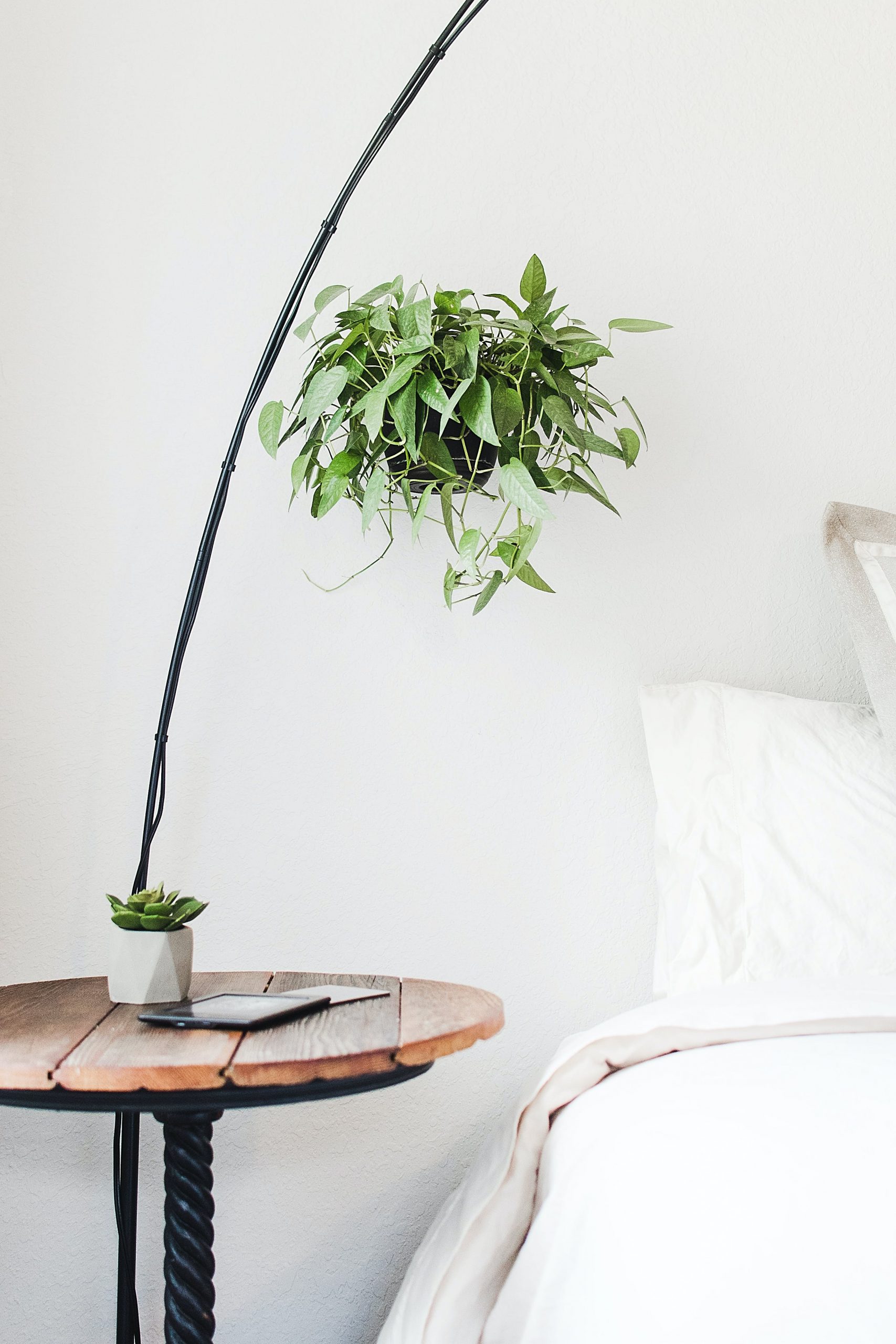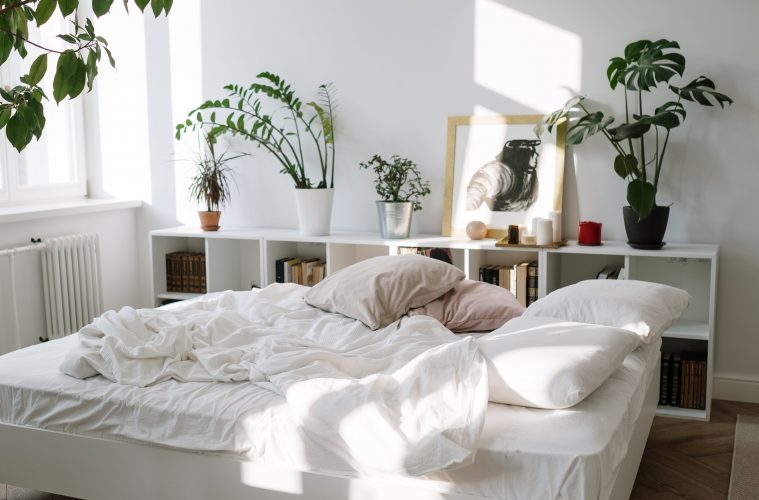Houseplants don’t only provide aesthetic value, according to researchers, they can also improve our sleep.
There are many reasons to grow houseplants, from interior design benefits to lack of outdoor space. But if you’re someone who has trouble sleeping, you can add another reason to the list. Recent research published in Life Sciences in Space Research investigated the impact of plants on sleep quality, specifically for those in long-duration isolated environments, such as space. Reminiscent of the NASA Clean Air Study that investigated the ability of houseplants to clean air in space stations, the researchers studied whether exposure to plants can boost sleep integrity, efficiency, and the time it takes to fall asleep. The results. although tested in isolated environments, provide some insights into how we can help ourselves sleep better at home.
Why do plants improve sleep?
Plants have long been known for their calming properties, with several studies connecting interaction with nature to improved moods and reduced stress. Keeping just one or two houseplants around has an impact on well-being, with positive effects increasing as you interact with plants. It’s these properties that contribute to better sleep. Interacting with plants for only 15 minutes can help reduce cortisol – the hormone responsible for stress. It also helps reduce the time it takes you to fall asleep and limits how many times you wake up during the night (known as micro-awakening events). Fragrance is another important element in night-time relaxation, explaining why the researchers focused on scented plants. Interestingly, colour also plays a role, with green plants providing the most positive impact on sleep quality. All these benefits contribute to a soothing mood and environment ideal for deep sleep.
Making the most of the benefits
Simply dotting a few houseplants around your bedroom is enough to reap the mood-boosting benefits. A study published in Biomedical and Environmental Sciences found that just looking at a bamboo plant for a mere three minutes lowered blood pressure and anxiety in several participants. But if you want to truly improve your sleep quality, it’s important to interact with your plants regularly. The act of caring for houseplants is calming in itself, giving you time to wind down in your night routine. Treat it as a short meditation, letting go of the stress of the day and enjoying the beauty of nature.

Pexels
Which plants to use:
Lavender
Lavender is one of the most renowned plants for improving sleep. Its soothing scent has been shown to reduce anxiety and stress, two factors that can inhibit a good night’s sleep. Lavender scent can also increase the percentage of deep sleep, also known as slow-wave sleep, which is crucial for muscle recovery and memory consolidation. These plants need plenty of direct sun, so keep them in front of a bright window to benefit from their flush of flowers.
Peace Lily
The peace lily is another mood-boosting plant, evident in the name. It is known for its ability to purify the air by removing harmful toxins such as formaldehyde and benzene. Cleaner air can make breathing easier, thus aiding in better sleep. But their glossy green leaves and stark white blooms provide benefits of their own, lowering blood pressure and heart rate while improving the look of your bedroom.
Basil
While basil is commonly associated with cooking, its wonderful scent and lush green growth also gives it sleep-improving properties. Basil contains compounds such as apigenin and linalool, which have a calming effect on the nervous system. These compounds can help reduce stress and anxiety, making it easier for people to fall asleep. The subtle scent of basil can also provide a comforting ambience that is conducive to relaxation and, consequently, better sleep.
Strawberry
Having a strawberry plant in the bedroom might seem unconventional, but it has its merits for improving Sleep. This is one of the plants used in the study, rich in antioxidants and compounds that aid melatonin production, a hormone that regulates sleep. Plus, the very act of caring for a living thing like strawberry that you can harvest from can be a soothing pre-sleep ritual that helps people unwind. Keep them in a sunny spot in your bedroom to avoid stunting growth.
Spider Plant
Spider plants are known for their exceptional ability to purify air, as well as their ease of care. Cleaner air can be especially beneficial for people with allergies or asthma, conditions that can severely disrupt Sleep. Spider plants are also non-toxic and safe for pets, making them a worry-free addition to a bedroom setting.
A version of this article was published in the Garden&Home October 2023 print magazine by Madison Moulton.
Feature image: Pexels

